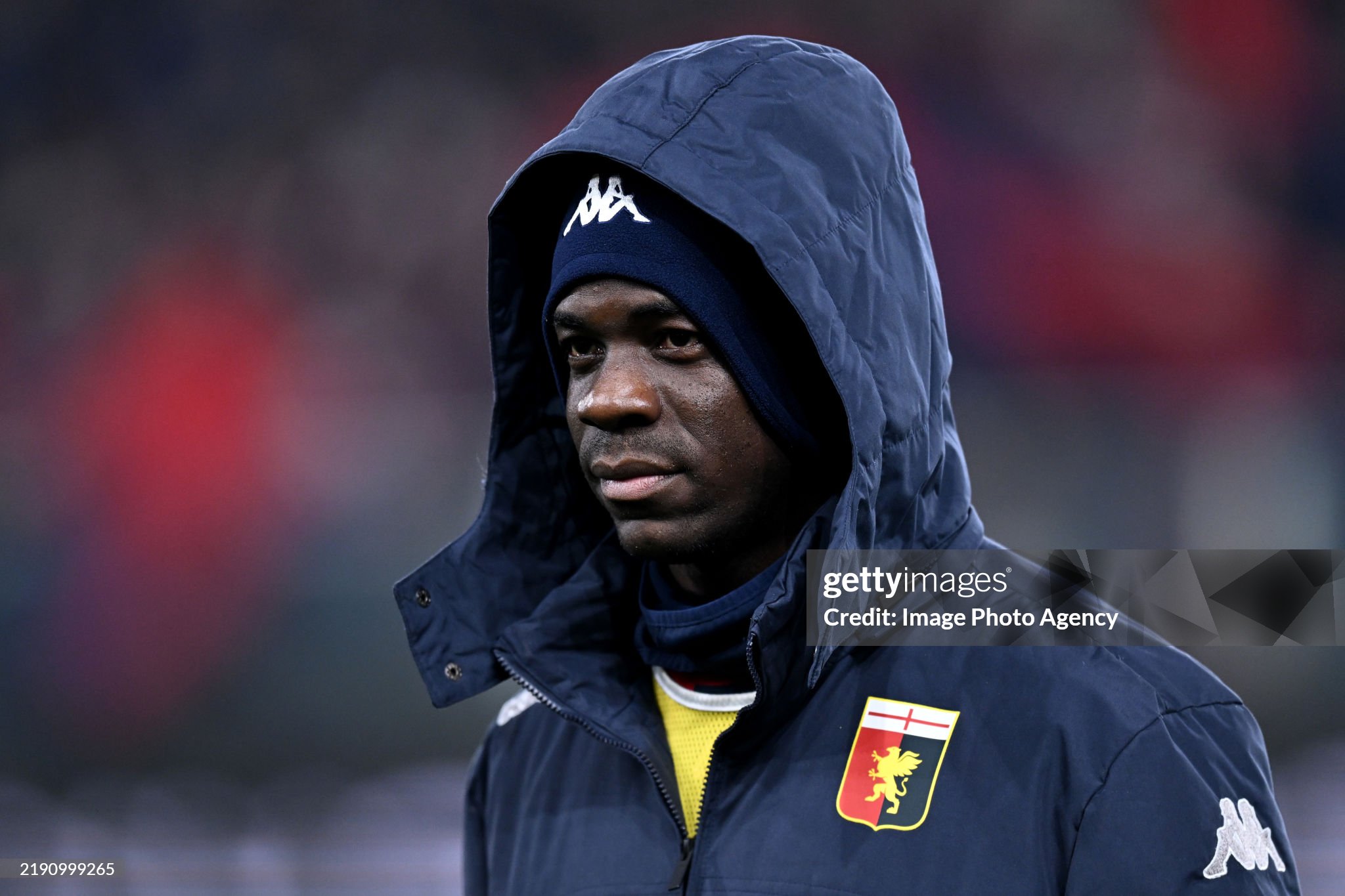Mario Balotelli turns 35 on Tuesday, and on the eve of his birthday, the colourful, unpredictable, and often headline-making striker gave a wide-ranging interview to “Gazzetta dello Sport” in which he spoke openly about his future, his regrets, his ambitions, and his enduring love for the game.
Currently without a club after a short and uneventful stint at Genoa where he played just six matches without scoring or assisting Balotelli finds himself once again at a career crossroads, a position that has become almost familiar in his turbulent footballing journey.
For many football fans, Balotelli is the embodiment of raw talent mixed with controversy. Bursting onto the scene as a teenager at Inter Milan, he was quickly labelled as one of Italy’s brightest prospects, possessing a rare blend of physical power, technical skill, and natural flair. Yet alongside the spectacular goals and unforgettable performances came disciplinary issues, clashes with managers, and a string of off-field incidents that often stole the headlines. Now, as he stands at the edge of what could be the final chapter of his career, his tone has shifted more reflective, more humble, yet still fiercely ambitious.
In the interview, Balotelli made it clear that retirement is not an option for the immediate future. “I’m looking for a club that believes in me,” he stated, signalling that he is ready to commit to a project where trust and playing time are guaranteed. His plan is to continue competing at a high level for at least two or three more years, before honouring a deeply personal promise he made to his younger brother, Enock Barwuah. Enock currently plays for Vado, an amateur club in Italy, and Balotelli intends to end his professional journey by playing alongside him. “We’ll see,” he said. “I promised him that I will end my career playing alongside him.”
That family commitment, coupled with a more grounded approach to his career decisions, marks a notable shift from the Balotelli of old. Yet even in this more measured phase, he still dreams big. He openly admitted that he has long harboured a wish to play for Real Madrid, a dream that has followed him throughout his career. While the prospect of joining the Spanish giants at this stage is slim, it speaks to the confidence some would say audacity that has defined him since his early days.
Beyond personal ambitions, “Super Mario” also voiced his concerns about the state of Italian football. His criticisms were blunt and unapologetic: “I’m passionate about football, but too many things are changing. I see many players on the pitch who are 1.90m tall, but nobody can get past an opponent anymore. Also because, as soon as a kid nutmegs another, he gets punished.” For Balotelli, the modern game in Italy has lost some of its soul the creativity, spontaneity, and daring that once made Serie A a theatre for individual brilliance.
Reflecting on his own career, he admitted that he could have pushed himself harder. “Overall, I could have worked harder [throughout my career],” he said candidly. “My only regret is the national team I could have played more.” It is a telling confession from a player whose relationship with the Italy national team has been both triumphant and frustrating. Balotelli has 36 caps and 14 goals for the Azzurri, and his greatest international moment came at Euro 2012, when he scored twice in the semi-final against Germany and celebrated with the now-iconic shirtless, muscle-flexing pose. He also played at the 2014 World Cup, but after 2018, his international career came to an abrupt halt.
Part of Balotelli’s mystique lies in the way his career has unfolded. From winning the Champions League and multiple Serie A titles with Inter, to claiming Premier League glory with Manchester City famously scoring the assist for Sergio Agüero’s title-winning goal in 2012 his career has been sprinkled with iconic moments. Yet it has also been punctuated by periods of inconsistency, fitness struggles, and public disputes with coaches such as Roberto Mancini and José Mourinho.
His moves have taken him across Europe, with stints at AC Milan, Liverpool, Nice, Marseille, Brescia, Monza, and most recently Genoa. Wherever he has gone, he has brought a mix of excitement, unpredictability, and drama. For his supporters, he is a misunderstood genius; for his critics, a case study in wasted potential.
Now, as he considers his next move, the narrative feels different. Balotelli is no longer the enfant terrible of European football, but a seasoned veteran with valuable experience and a desire to make the most of what remains of his playing days. Whether his future lies in Serie A, abroad, or in a completely new environment, he appears determined to leave on his own terms ideally, with his boots on, sharing the pitch with his brother.
In the end, Mario Balotelli remains one of football’s most fascinating figures. Loved and criticised in equal measure, his story is as much about human complexity as it is about sport. The next club that decides to take a chance on him will be getting not just a player, but a personality who has lived every high and low the game can offer. And for Balotelli himself, the clock is ticking but perhaps, just perhaps, there is still one more big chapter left to write.


